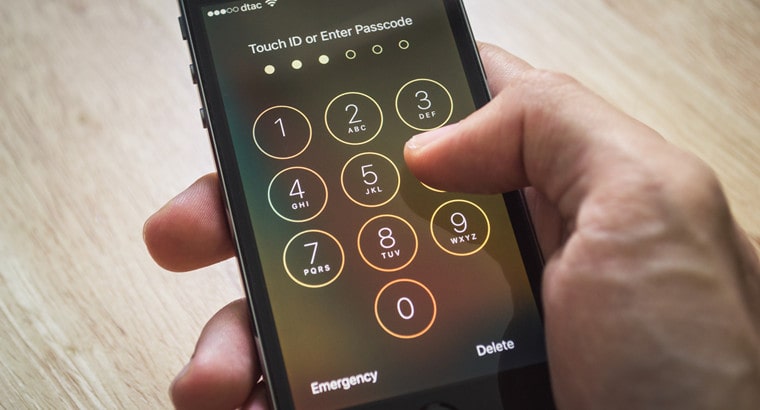Our increasing reliance on our phones highlights the need to take extra precautions to keep them safe. While technological advancements have made iPhones more powerful, they have also made them more vulnerable to hacking. In this article, we’ll cover some best practices for protecting your iPhone in 2023.
The Importance of iPhone Security
iPhone’s ability to facilitate communication with loved ones, provide instant online access, and store important data has made it an integral part of our everyday lives. Unfortunately, malicious actors can easily take advantage of this convenience to steal personal information or infect computers with malware.
Identity theft, financial loss, and exposure of sensitive data are just some of the devastating consequences that a data breach can cause. Therefore, precautionary measures to protect your iPhone from cybercriminals are essential.
Keep Your iPhone Software Updated
Having the latest software on your iPhone is one of the best ways to keep it safe. Apple releases updates that fix bugs and security vulnerabilities, so be sure to get them as soon as possible. Go to Settings > General > Software Update to see if any new versions are available. If an update is available, get the latest version as soon as possible.
Learn How to Block Websites on iPhone
Blocking certain websites on iPhone can be a useful security measure, especially if you want to restrict access to specific content or prevent your children from visiting inappropriate websites. Fortunately, the iPhone has a built-in feature that allows you to easily block websites.
To block websites on iPhone, follow these steps:
- Open the Settings app on your iPhone and select Screen Time.
- If you haven’t set up Screen Time, select Turn on Screen Time and follow the prompts to set it up.
- Select Content and Privacy Restrictions.
- If prompted, enter your Screen Time passcode.
- Select Content Restrictions.
- Select Web Content.
- Select “Limit Adult Websites” to automatically block adult content or “Add Websites” to manually add websites to block.
- Enter the URL of the website you want to block, then select Done. You can add multiple sites to the list.
- Return to the home screen, open the Safari App, and test whether the website is successfully blocked.
With these simple steps, you can easily Block Websites on iPhone And keep your device safe from potentially harmful content. Keep in mind that this feature only works with the Safari browser, so you may need to install a third-party app if you want to block websites on other browsers.
use strong passwords
A strong passcode is critical to keeping your iPhone secure. Don’t choose passwords that are easy to guess or based on personal information like your name or birthday. Instead, use a mix of case sensitivity, punctuation, and symbols. You can also use two-factor authentication, which requires a password and a code sent to your phone.
Enable Find My iPhone
If you lose your iPhone, you can use the Find My iPhone feature to locate it. You can activate Find My iPhone by going to your device’s settings and selecting iCloud, then selecting that option. You can remotely lock your iPhone, send it a message, or find it if it’s lost or stolen. You can use it to get back your iPhone or protect your information from prying eyes.
use VPN
A VPN (Virtual Private Network) is a great tool for securing your iPhone’s internet connection. It encrypts your data, making it difficult for hackers to intercept or access it. Plus, it hides your IP address, protecting your online privacy. There are many VPN services available, so be sure to choose a reputable provider.
Disable lock screen notifications
Lock screen notifications can be a security risk because they can reveal sensitive information without requiring a password. To disable lock screen notifications, go to Settings > Notifications > Show Previews and choose When Unlocked or Never. This will ensure that your iPhone’s notifications are only visible when your device is unlocked.
Use public Wi-Fi sparingly
Public Wi-Fi networks can be hotspots for hackers and other security threats. Avoid connecting to public Wi-Fi networks whenever possible, especially if they don’t require a password. If you must use public Wi-Fi, use a VPN to encrypt your data and avoid accessing sensitive information or entering passwords.
Use Touch ID or Face ID
Both Touch ID and Face ID are secure and easy ways to unlock your iPhone. These security measures use biometric information such as fingerprints or facial photos to verify your identity. This makes it impossible for others to use your iPhone even if they know your passcode. Navigate to Settings > Touch ID & Passcode or Settings > Face ID & Passcode to activate Touch ID or Face ID respectively.
Conclusion: Keeping Your iPhone Safe
Protecting your iPhone is critical to protecting your personal data, privacy and financial security. By following the tips outlined in this article, you can significantly reduce your risk of security breaches and enjoy peace of mind while using your iPhone.
Remember to keep software updated, use strong passwords, enable Find My iPhone, use a VPN, disable lock screen notifications, use public Wi-Fi sparingly, and use Touch ID or Face ID. By taking these steps, you can ensure your iPhone remains safe and protected through 2023 and beyond.
In summary, technological advances have made our lives easier in many ways, but they have also made our vulnerable to security risks. Therefore, it is very important to take proactive measures to protect our devices, especially our iPhones, which contain a lot of personal information.
By following the tips provided in this article, you can protect your iPhone and enjoy all the benefits of using this powerful device. Remember, prevention is always better than cure, so take the necessary steps to protect your iPhone today.
